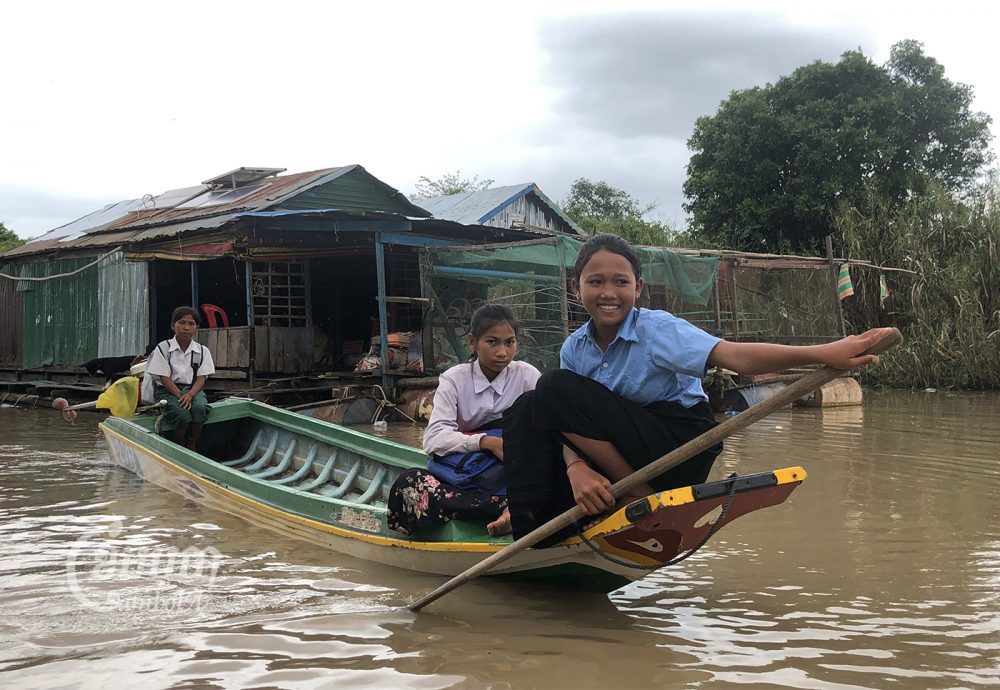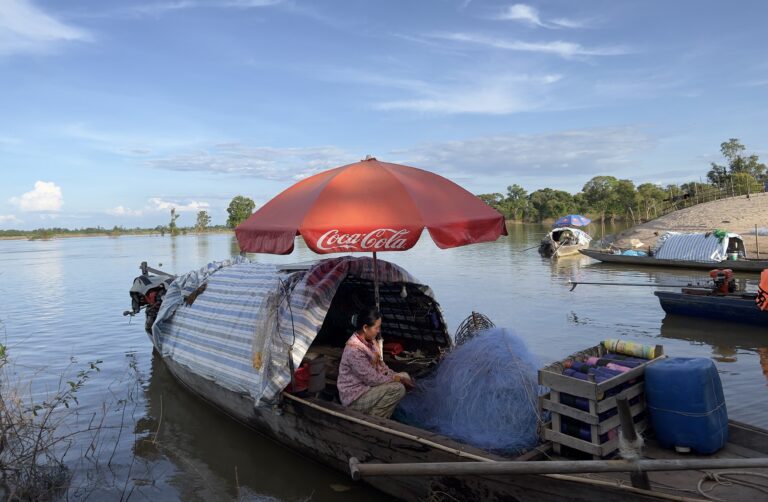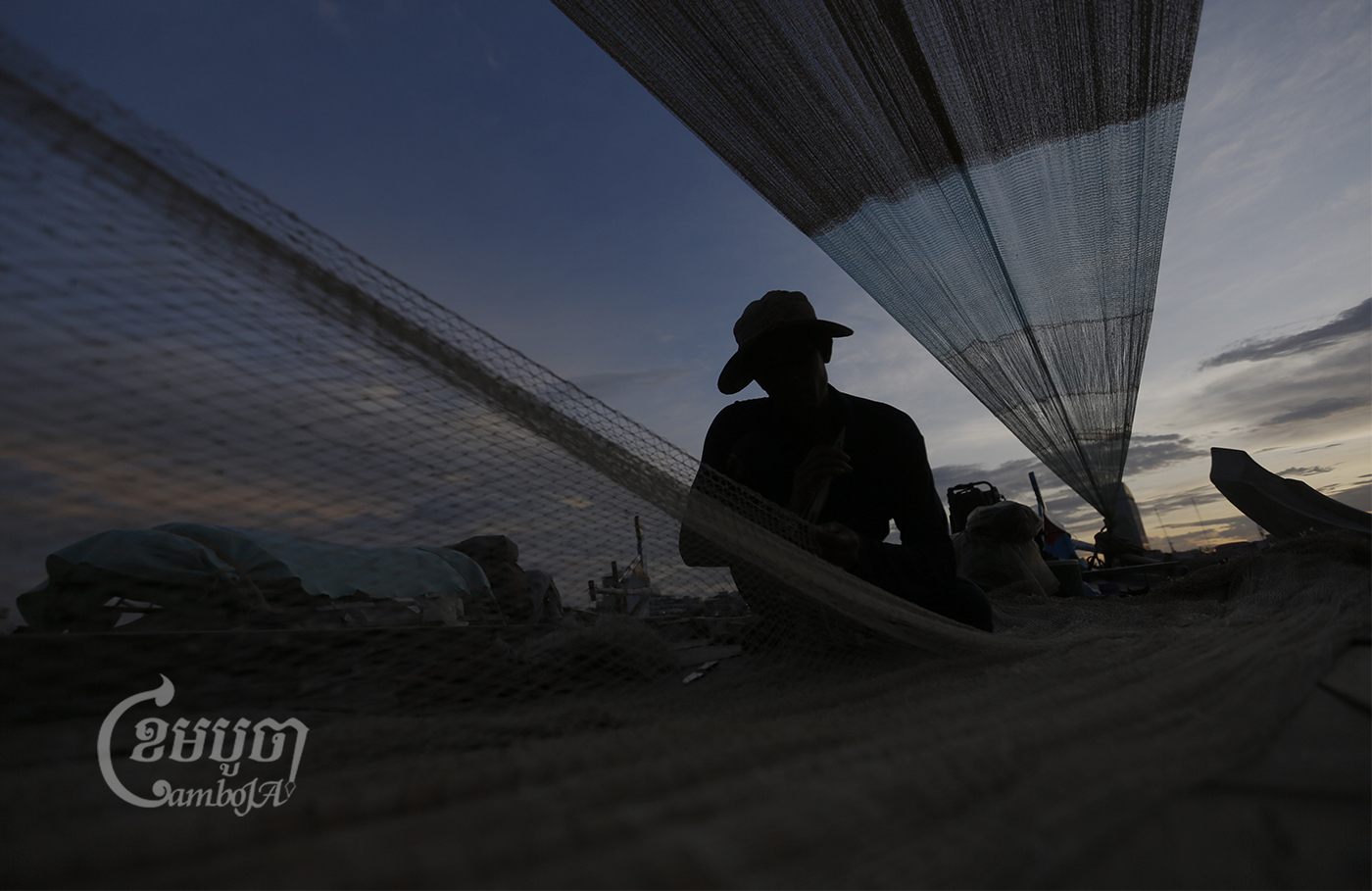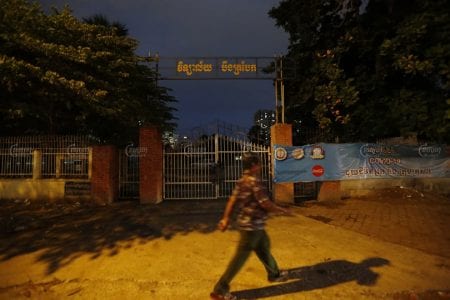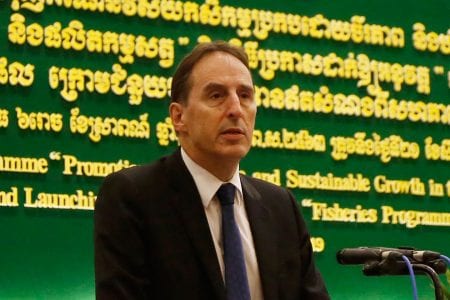Pursat Province’s Krakor district: Chea Reaksmey, 13, has managed to make it to sixth grade on the Tonle Sap lake. At Kampong Prak Primary School, she’s an excellent student — one who dreams of becoming a teacher. But with the nearest secondary school on the mainland, far from her floating home, she has little hope of furthering her education.
“I have to study for the sixth grade again if my mother cannot afford my studies. I want a secondary school near my house because it is not difficult to go far and help my parents,” she said. “I was very happy when I went to school. I wanted to have knowledge, and when I saw others continuing school, I wanted to, too.”
Hem Le, the principal of Kampong Prak Primary School in Sna Ansa commune, said Reaksmey is a dedicated student who studies hard. But he fears that without a secondary school nearby, her family is unlikely to be able to keep her in school.
Some 98 families live in the floating village of Kampong Prak, including 74 students. Each year, only two or three students from Le’s school are able to move on to Sna Ansa Secondary School. The school is located about seven kilometers from the floating village, which works out to an enormous cost to parents. Only a lucky few can afford the commute or arrange for their children to live on the mainland.
“Every year, 10 students have to go to secondary school, but only two or three can continue,” Le said. “Parents’ living standards may push them to go to school, but they can’t afford it.”
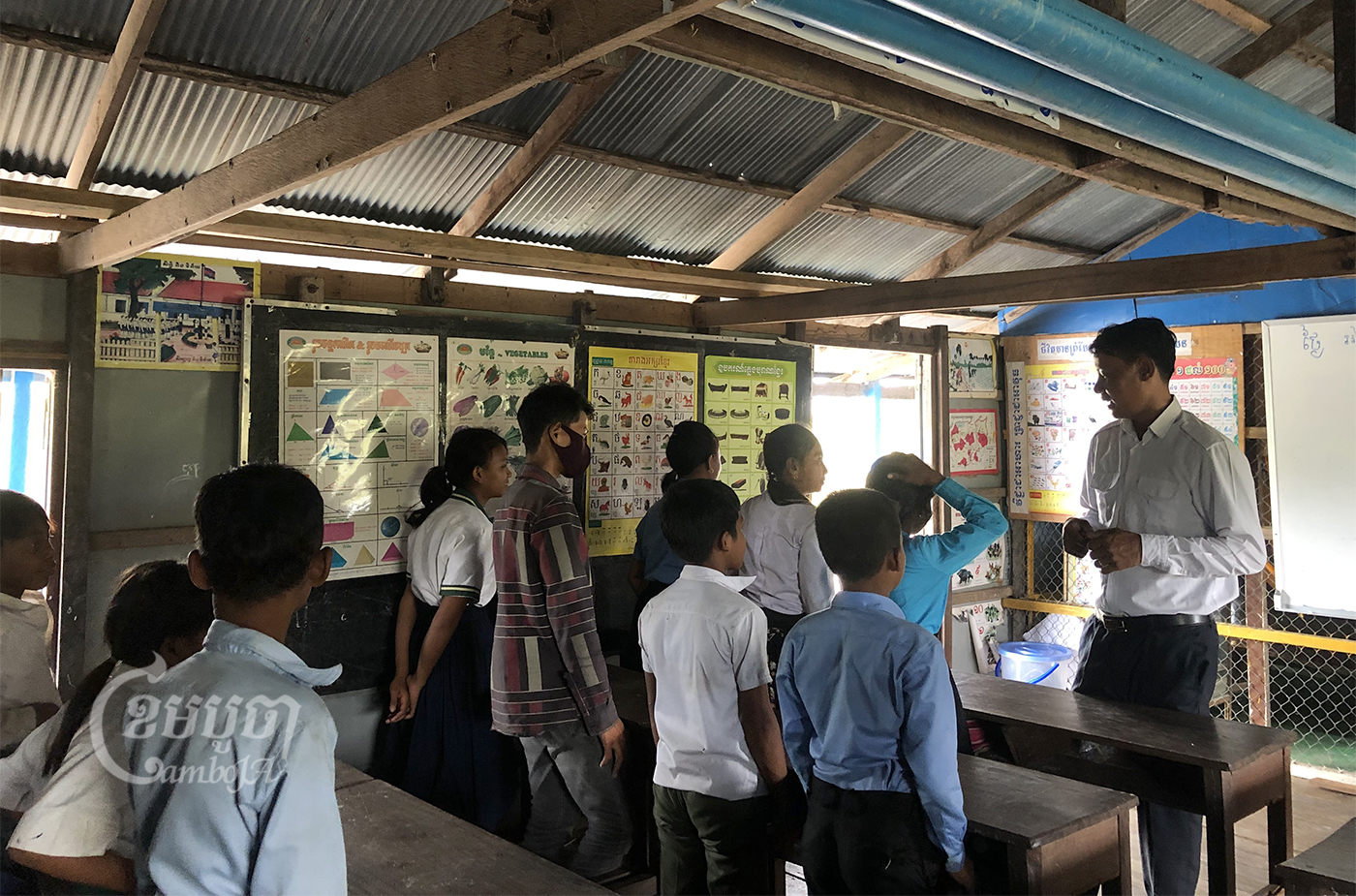
Fishing families who live in small floating villages like Kampong Prak are among the poorest of lake residents. A severe decline in the fisheries in recent years due to overfishing, hydropower dams, and climate change has left many families in even deeper debt and more reliant on their children to help with the fish catch.
The primary school was built in 2014 by the Rural Friend Community for Development (RFCD), according to Le. In the eight years since it opened, students have shown a keen interest in continuing their education.
Kampong Prak along with neighboring Anlong Raing, and O’Akal have requested the Provincial Department of Education to build a secondary school to serve all three floating villages. The answer has always been no.
“Schools can be built, but there may not be any teachers, because in primary school, a class needs only one teacher, but in secondary school, more teachers are needed. It is difficult to get them to teach; it is not easy,” he explained.
When educations officials do come to the village, they seem disinclined to address the request.
“The Provincial Department of Education did not raise the issue of the construction of the secondary school; they just came to see the students and encourage them to finish school,” Le said, adding that: “There was no focus on whether there should be a secondary school here.”
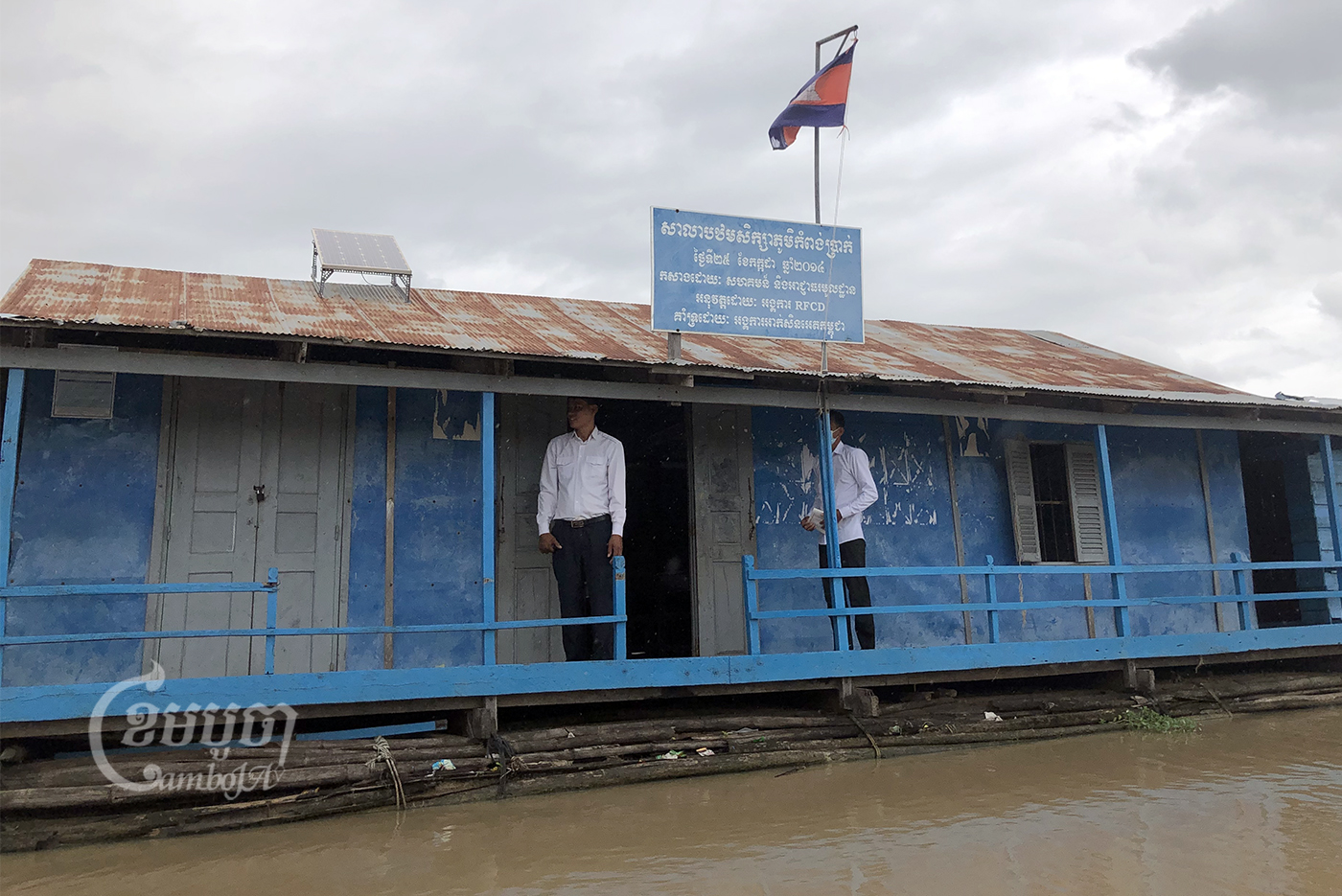
Like Reaksmey, many students simply repeat grade six two or even three times. That eagerness to continue attending school, said Le, showed that attendance would be high should a local school be built.
Reaksmey’s mother, Hun Kosal, said that she struggled to earn a living due to declining fish catch. While she’s eager to keep her children in school, it’s impossible to do so when the mainland is the only option.
“Life is difficult and security is not good when my child goes to school far away. If there was a secondary school there, it would be better because she would go to school and come home to help us with some work,” Kosal said.
Seng Ratha, 16, who graduated from grade six last year after repeating it twice, said that if there were a floating secondary school near his Kampong Prak house, he could have an opportunity to continue studying.
“[I] want to study but we have no school and no students. Now I still help fish to earn money to help my mother,” he said.
Ratha’s mother, Than Sour, said that she regretted her inability to send him to secondary school.
“If there were a school here, I would let him continue his studies. If he goes to school on land, it is not possible,” she said. “I am a mother and I feel sorry for my children, but I do not know what to do.”
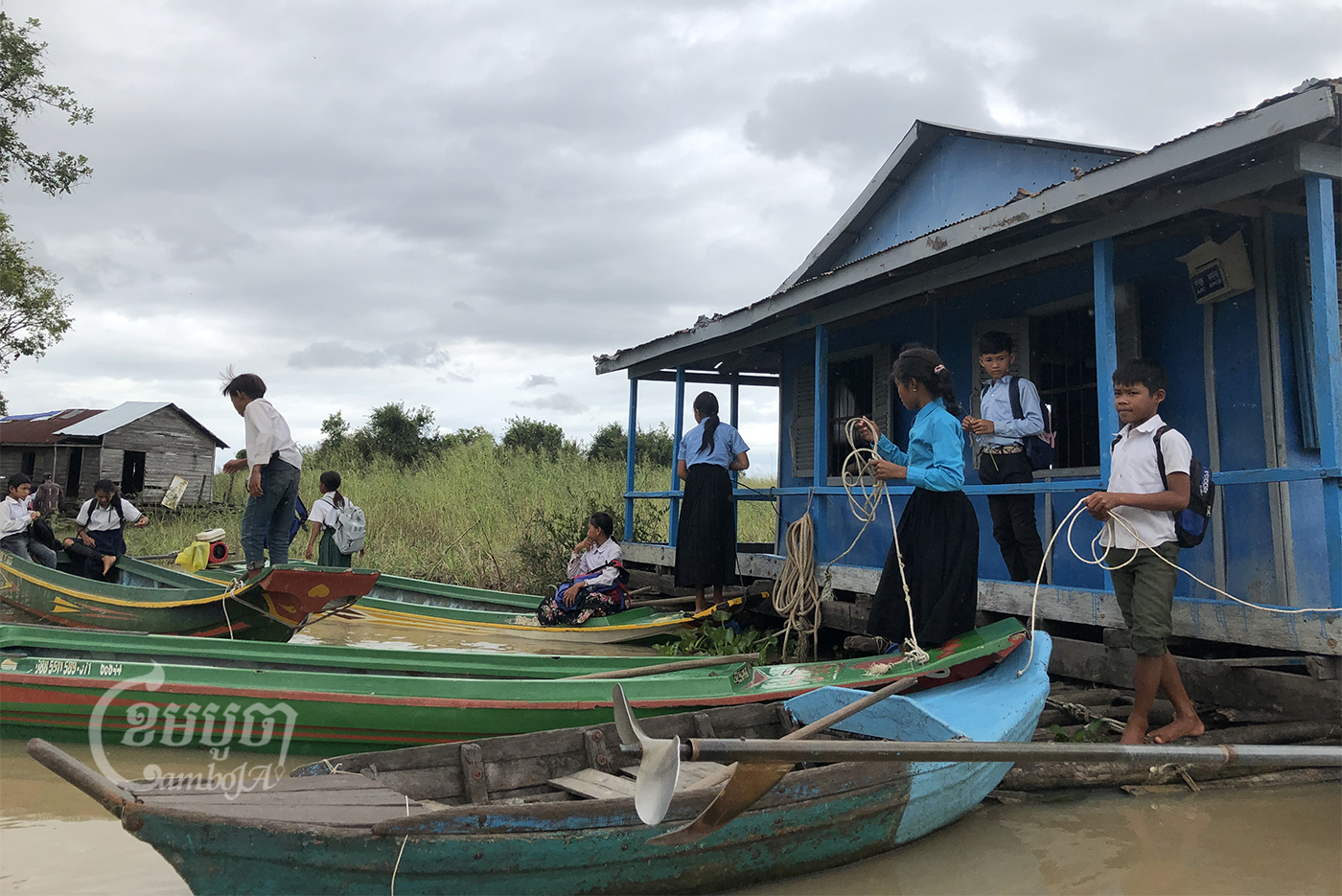
Chan Theara, director of RFCD, said she’s held discussions with the Provincial Department of Education, but officials have repeatedly told her a new school was impossible due to insufficient numbers of secondary school students.
If children cannot access higher levels of education, though, Theara said it’s nearly impossible for their lives to improve.
“We wanted their area to have human resources to help each other. We did not want them to study only the sixth grade and go fishing,” she said. With so many parents lacking the money to send children to the mainland a local secondary school is the only way for student to move up. A school in the village, she noted, would permit students to attend even if they had to help parents part of the day.
The success of RFCD’s primary school demonstrated how families were keen to help their children access better opportunities.
“Without this school, the children here would not have been able to get any education,” she said.
While he understood the challenges facing the community, Lim Vuthy, deputy director of the Pursat Provincial Department of Education, said that there were simply too few students in the floating villages to justify the expense of building a floating secondary school. Some 45 more would be needed for such a school to work.
“Students there only go to primary school because of the high cost in that area. It is a difficult situation. Therefore, we need the help of partner organizations or other stakeholders to be able to work.”
In the meantime, Vuthy said, all they can do is encourage students to continue their studies on land.
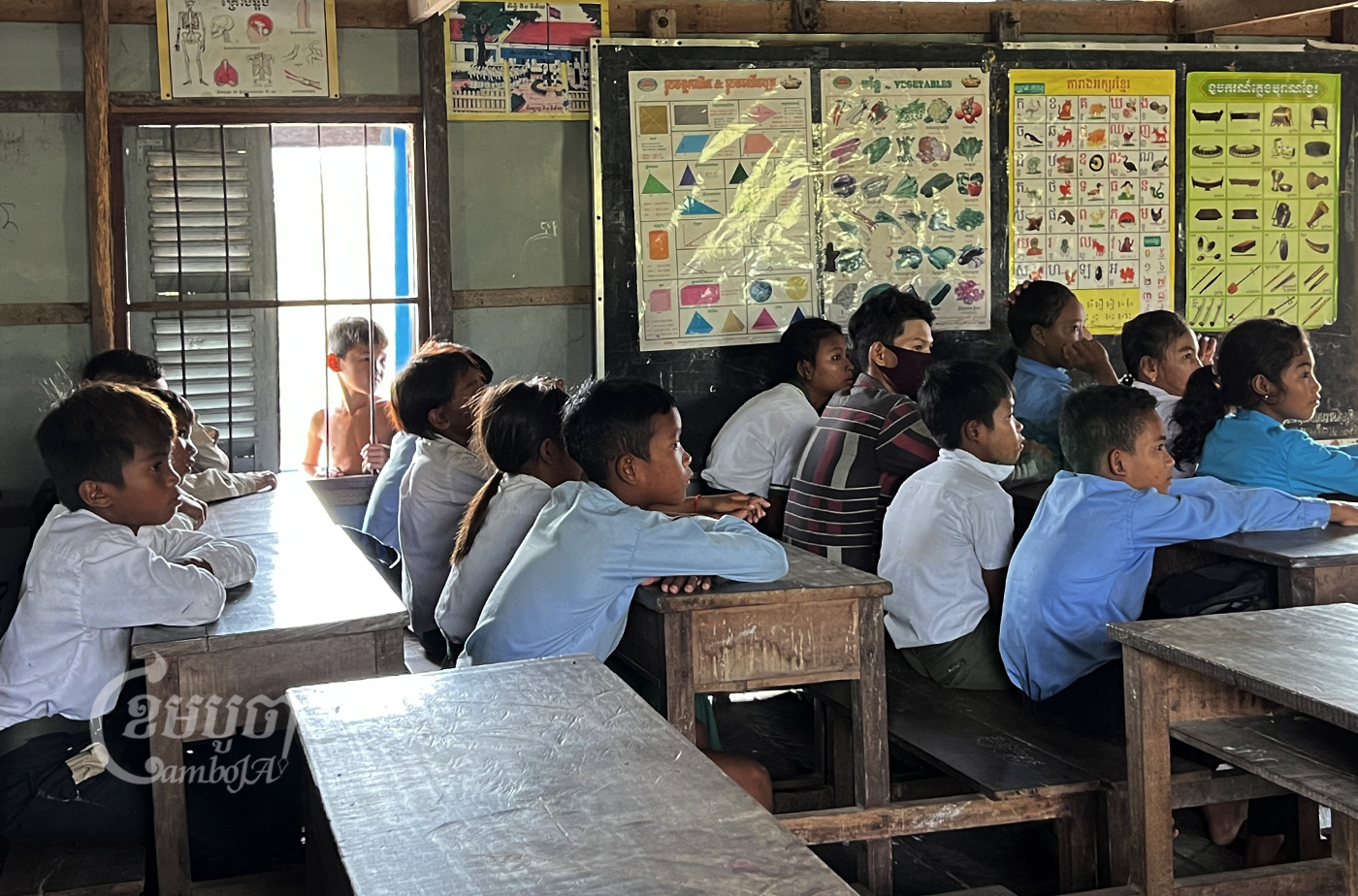
For parents like Bat Vann, 39, the mother of a fourth grader, that is simply an impossible prospect. The fish catch continues to plummet and she’s desperate for her children to become educated and find another profession. But lacking a mainland home, Vann knows there’s simply no way she will be able to educate them past grade six.
“So if there is a secondary here, it will be easier. I want a secondary school here,” she said.


